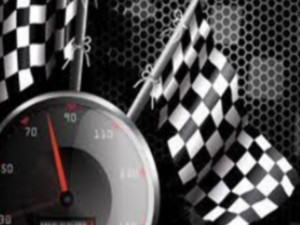
Business success is no longer just about producing products, selling goods and fulfilling current client needs. It's about reacting to global trends, new client demands and expanding technology in the fastest and most proficient way possible.
One thing is definite: change no longer happens periodically. It's continuous, constant and unrelenting, says Mandy Schoeman, founder of Scrum Solutions.
The global, real-time, customer-driven markets in which enterprises operate require a new flavour of business agility. So what is business agility? It's the ability to rapidly and cost-efficiently adapt and respond to changes in technology, industry and business environments.
Change is inevitable and business success is dependent on adapting to this for competitive advantage and longevity.
Most executives agree that leading innovation and change is vital to long-term business success; however, less than a third understand how to adapt and break the cycle of aquaplaning.
No matter our views on "success" or how we define it: if your business is not in pole position at the start of the race with a view to finishing on the podium, you need to re-examine your current formula for winning.
No one understands the changing landscape of business better than Formula One's CEO Bernie Ecclestone. An Agile leader who's received the ultimate reward for leading innovative change through his organisation's success; 1.75 billion enthralled loyal fans in 19 countries, a testament to this.
Formula One pit stop crews are nothing short of amazing; drivers receive - within seconds - four fresh tyres, a tank of fuel, an inspection to remove debris and new parts to replace track casualties... that's 115.8 man-seconds of work in just 7 seconds! Best display of Agile if ever there was one. Agility incorporates the ideas of flexibility, balance, adaptability, and coordination under one umbrella.
What has your team achieved in the equivalent of F1's seven seconds?
While conforming to the same set of rules, Formula One teams collect live, accurate information, make informed decisions, maximise resources, and ultimately, build faster cars to put their driver across the line first. Because milliseconds determine the win, teams must focus and continuously improve their product and processes to remain "world champions".
Today, businesses operate under similar conditions to Formula One teams:
* Spending is capped, making efficiency and operational improvements imperative.
* Extremely rapid development from concept to production is a requirement in just days.
* Innovative designs based on collected data, tests and automated simulations.
* Insight and well-timed resolutions for a single goal of further wins.
Agile frameworks like Scrum work in every industry. Company size and project complexity do not prevent organisations from becoming agile. However, the commitment to transformation and how it is carried out, most certainly does. Scrum is a simple inspect-and-adapt framework, which will not only assist in managing complicated/complex projects, but will increase employee motivation and satisfaction.
As central as innovative technology has become to the success of teams like Ferrari and McLaren, it's the agile empowered and talented pit crew that make the Formula One teams successful.
Join us in the slipstream of Agile Action, where you'll learn how to trade in your 1100cc for the latest F1 Scrum car. Visit www.scrumsolutions.co.za to book or e-mail carin@ scrumsolutions.co.za.
Article by Mandy Schoeman, founder of Scrum Solutions, image courtesy of http://www.loadgraphic.com.
Share
Editorial contacts